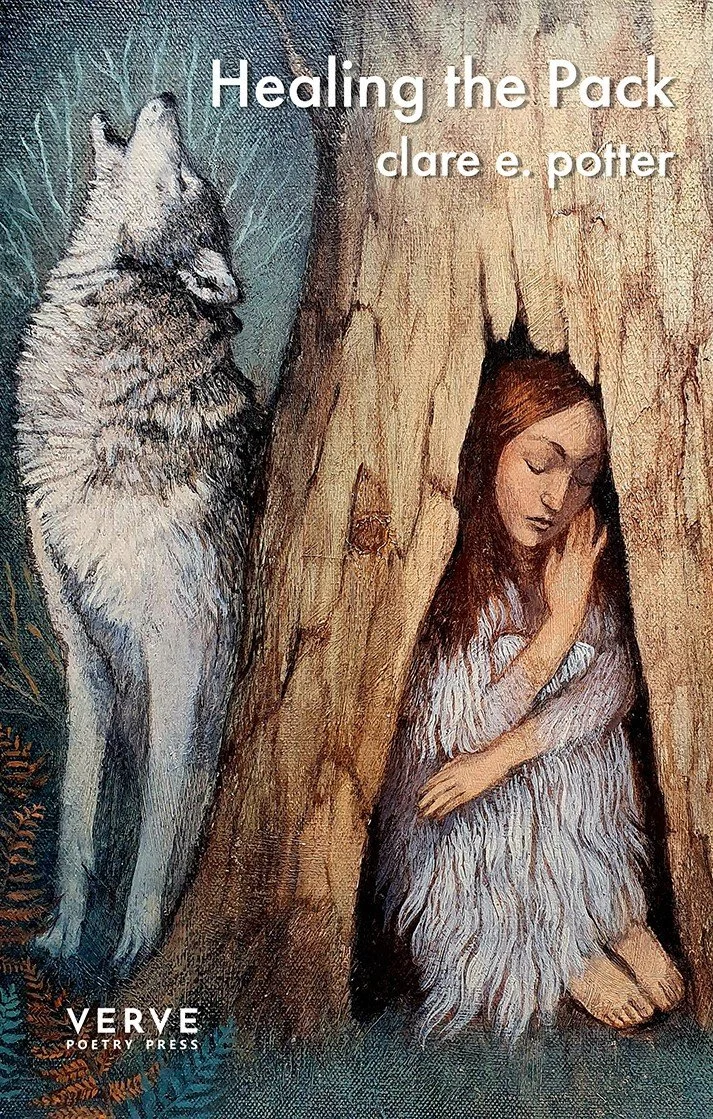Healing the Pack by clare e. potter
Reviewed by Richard Collins
Poetry is magical when it says more than it says, when the music echoes between the lines, when
it somehow conjures ghosts, not to exorcise but to welcome them back into the fold.
clare e. potter’s Healing the Pack is at times, literally, haunting. From the moment she feels the
touch of her mother’s hand, “bringing me back / into myself,” that touch makes her wake up and
pay attention to the world around her, to be grateful for the present, and grateful to the past for
how it buoys her up in the world of life around her: “the fly in the window, / the white rabbit on
the grass.” I can’t help but think of Alice’s White Rabbit, the spirit animal that takes her on a
journey deep into her own psyche where the healing takes place.
The healing that takes place is generational, forward and backward with personal history
(siblings and parents and children: “a family of wordmakeruppers,” in fact the “pack”), but also
into the communal history of her Welsh ancestry, with its own iaith (language) and hwiangerddi
(lullabies), linguistic roots that ground and bind the tribe, sometimes unconsciously as something
to be (re)discovered. Sometimes the language takes over, like the voice of possession, in the
“witches’ cauldron” (pwll-y-wrach) of language both inherited and learned:
rhythm pulled by moon and tongue
hear its pitch from swell and belch
wrack and kelp of vowels sung
Some of these, as a result, are poems best read-aloud, like “Taking It Out,” where the repetition
of affricates and plosives mimic the reassuring sound of grandmother chopping wood, so that we
don’t need to be told the meaning, the meaning is in the sound itself, so that “even the axe
understood.”
You can hear the poet read this poem, along with an interview, here:
www.youtube.com/watch?v=KhTrN_Ccylw
Richard Collins
Richard Collins has taught at universities in the U.S., Romania, Bulgaria, and Wales. Dean Emeritus of Arts and Humanities at California State University, he is now the abbot of the New Orleans Zen Temple and Stone Nest Dojo in Sewanee, Tennessee. His poetry, reviews, and literary criticism have appeared in over 100 journals. His books include John Fante: A Literary Portrait (Guernica Editions, 2000), No Fear Zen (Hohm Press, 2015), In Search of the Hermaphrodite (Tough Poets Press, 2024), and Stone Nest: Poems (Shanti Arts, forthcoming).



